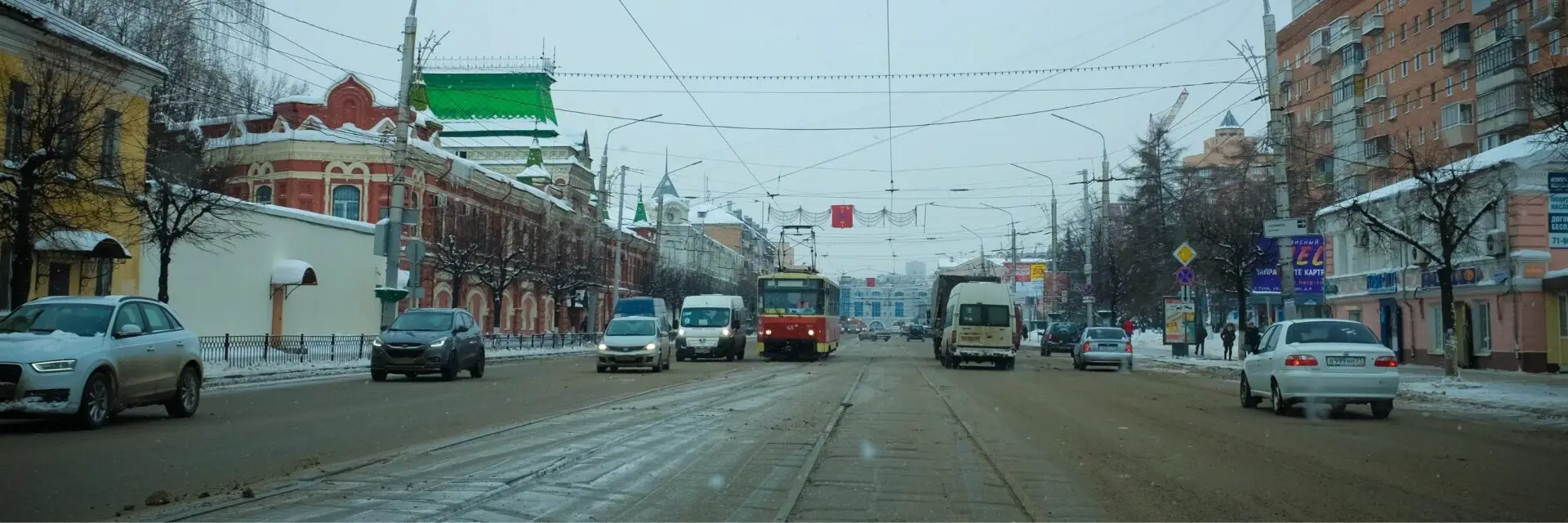The following article is a guest post from Paul Worrow from the United Kingdom who has taught English all over Russia. He has worked as a governor in Moscow and an English teacher in several small Russian cities for many years. He recently started a YouTube channel about Kyrgyzstan where he shows what it is like to live there.
If you are looking to make significant money teaching English in Russia at language schools then jog on, this job (and article) is not for you!
You should look at teaching in Japan or forget about teaching English altogether. However, if the financial reward is not your only motivation, then you may wish to consider teaching English in Russia as an option. Having traveled around every country in Europe, I can quite easily say that Russia is the most interesting and exciting for a visitor. Looking for more reasons to teach English in Russia? Here are our top 5 reasons to try it!
With the open borders of the EU and the freedom of movement, the EU often feels like some chaotic collection of countries, trying to be as one, but also trying to maintain what is left of their dwindling identity. Russia doesn’t have this problem, and you’re sure to be impressed with how “Russian” Russia actually is! So, if you want a more authentic experience, then look no further than Russia.
Every day in Russia is an experience. Even after living here (on and off) for many years, barely a day goes by when I’m not surprised (or sometimes even shocked) about something or other. Provincial Russia is a place of extremes, whether it be the people, nature, or climate. If you want to get out of your comfort zone then it is the place for you. If you don’t want to venture so far out of it, that’s fine, just stick to Moscow or St. Petersburg.
The advantage of working for one of the many language schools in the Russian provinces is that they will fully look after you. Everything from your visa support, registration, accommodation, etc will be taken care of. The language school will even assign someone to be at your beck and call, especially while you are settling into your new city. They will help you buy a SIM card (not a straightforward thing in Russia!), sign up at the local gym, be your city guide, or just be your friend. You really don’t have to worry about anything. Russians know how daunting their country can be for foreigners and they will do anything they can to help you adjust.
Living Standards and Salaries in the Russian Provinces for English Teachers
Concerning everyday living, you’ll actually be quite comfortable in the Russian provinces. I started this piece by alluding to low salaries, but they are only low by Western standards. Within Russia, you will live perfectly comfortably on your 40,000 rubles per month with your accommodation already provided by the language school. 40,000 rubles seems to be the going rate for teaching English around Russia (outside of Moscow and St. Petersburg). It’s worth noting that you will probably only be working around 20-25 hours a week.
I have seen some language schools offer much higher salaries, even up to 120,000 per month, but presumably, you’ll have to work much longer hours. To be quite honest, unless you are particularly materialistic, you don’t actually need much money to live in provincial Russia. A new iPhone will cost you a few months’ salary, but everyday costs like transport and eating out are very cheap.
To give an example, a pint of beer (well actually, half a liter to be precise) in my local pub in the city of Orenburg where I’ve been living, costs 60 rubles. Compare this to the cost of living in Moscow! If you are not sure what that is in dollars then use your favorite currency converter and a very pleasant surprise awaits you! So the low (by Western standards) salary doesn’t affect your life quality at all. I actually live far more comfortably in provincial Russia than I did in London for many years beforehand. The only issue is when the time comes to convert the weak ruble to dollars, euros, or pounds. You won’t get much back in your stronger currency at all.
What is it Like to Teach English in the Russian Provinces?
What about the teaching itself? That’s the main reason you’ll be heading out into the sticks anyway. First, let’s focus on the work environment. Most of the language schools are located in converted apartments and so tend to be a bit pokey. When full of students and teachers it can get awfully crowded. Staff rooms are very small. Getting a seat might not always be easy. There will be only one computer, printer, and photocopier so at busy times you might have to wait for a while to use these. If you like space, then the work environment may not be too comfortable for you.

Your work colleagues are always likely to be in a rush, fitting in lessons around picking up the kids from school or doing the shopping, so don’t expect much social interaction at work beyond a “hello.” Some of your colleagues might even be a bit intimidated by you. You, an American, arriving in their small city from the US is like an alien landing from space. Others will be curious but Russians are not chatty by nature anyway.
The vast majority (maybe even all) of your colleagues will be female so if you enjoy male company then you are likely to be out of luck. I’m referring to your Russian colleagues here. You may be the only native English teacher at your school or there may be others. Your fellow expats are likely to be male.
You may well not see too much of them though as their schedule and location are likely to be different from yours. Also, some of them will be settled, with partners and other commitments so will not be particularly interested in socializing with you either. Loneliness can sometimes be an issue. Although a lot of expats enjoy the solitude you can find in Russia, this huge mass of land.
It seems to me that female native English teachers are very under-represented in Russia. If you are a brave female, I would encourage you to consider it as I’m sure your colleagues and even more so, your students would really appreciate the change from the norm. Chances are though, if you are reading this, then you are a male. The solitude, cold climate, hockey, cheap beer, and beautiful women tend to appeal more to males than females!
As for teacher age groups, I have observed that provincial Russia seems more popular for older expats. In my last school out of the five native English teachers, two were over 50 and one over 60. I think this is not a coincidence. The more relaxed pace of life and the fact that an older person probably has savings to help increase their living standard, make it an attractive proposition. Not to mention the fact they are still in high demand whereas in their own countries they might find opportunities at their age limited.
If you are no spring chicken then the provinces would likely suit you. If however, you are in your twenties, then you might wish to stick to Moscow or “Piter” as there is more to keep you entertained especially if you are looking for nightlife, which is not very good in smaller places. Provincial cities can be eerily quiet at night, especially in winter. Even when I lived in Omsk which is a city of more than a million people, public transport would have stopped by 10 pm. It’s probably a throwback to Soviet times when citizens were expected to be early to bed and early to rise and certainly not to be partaking in “bourgeois” nightlife! Also, unlike in the west, people don’t have a disposable income whereby they can afford to go out more than once a week.
What are the Students Like?

As for the students themselves, they are great! The real highlight. You teach kids, teenagers, and adults of varying English levels. Even though the kids and teens are there because, at their parents’ insistence, they can be enthusiastic and are very well behaved. You never get any backchat or rudeness from them. I can’t imagine kids back home being so attentive. The advantage of being a native English teacher is that the teenagers never challenge or question your knowledge of English, like some of the cheeky ones sometimes do with the Russian English teachers! (Whose knowledge of the English language is generally excellent).
Note, that in the smaller towns, the teenagers might be keener to learn than their counterparts in the bigger cities. As for the adults, they are great. They choose to be there and so are very motivated and keen. A lot of the adults and young adults have been learning English for many years and their knowledge of the language far exceeds that of an average native English speaker. You’ll definitely have to be brushing up on your grammar before your “advanced” lessons.
Note that a lot of the adults seemed to prefer the online learning that we had to implement in 2020 due to Covid, and so in the future, it wouldn’t surprise me if the language schools save themselves the hassle and cost of inviting you to work in their cities and just employ you remotely. So, if you want to go teach English in Russia, think about doing it soon!
Do you need more motivation to look for a job in Russia? Check out our article on why getting a job in Russia isn’t hard at all!


